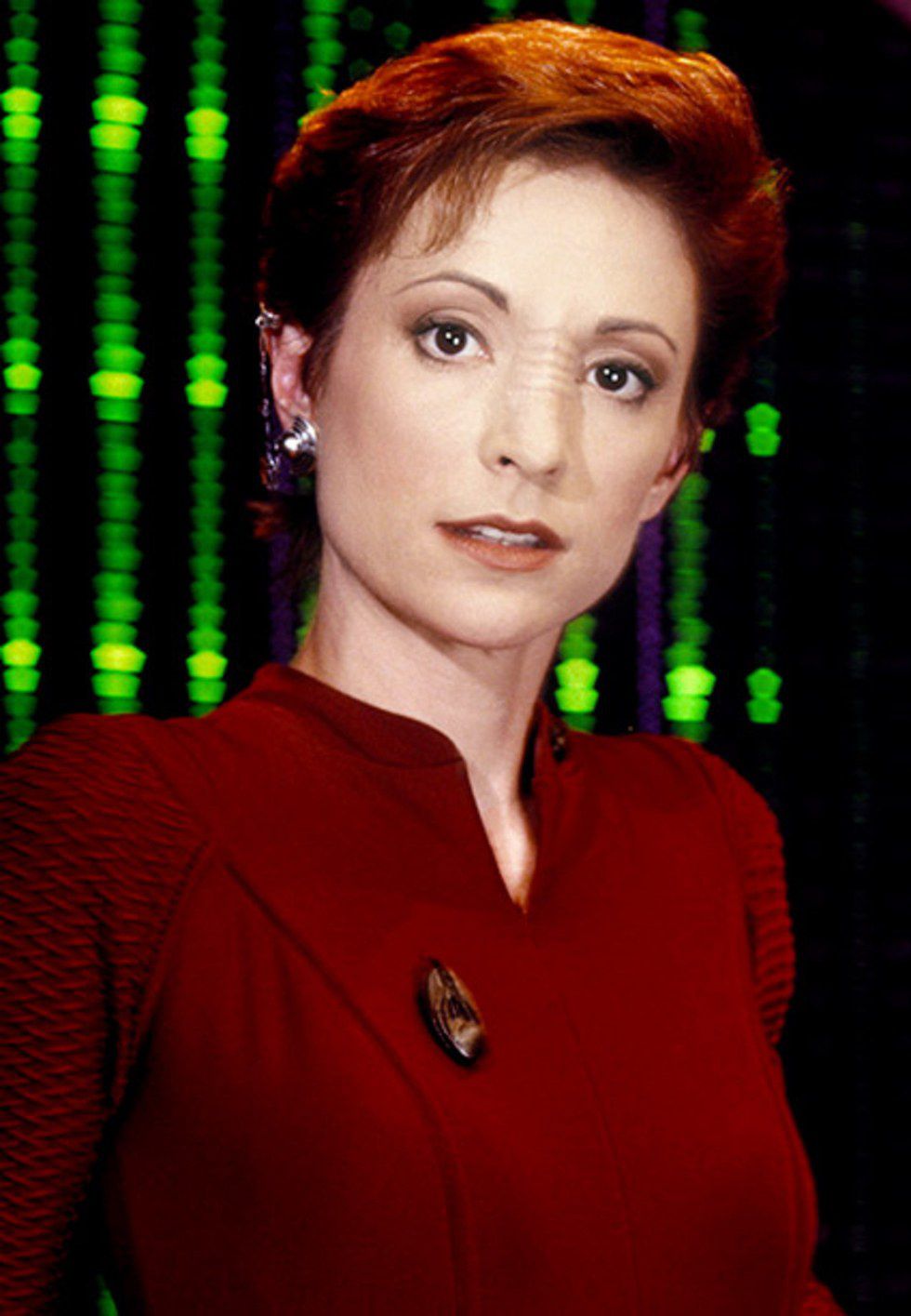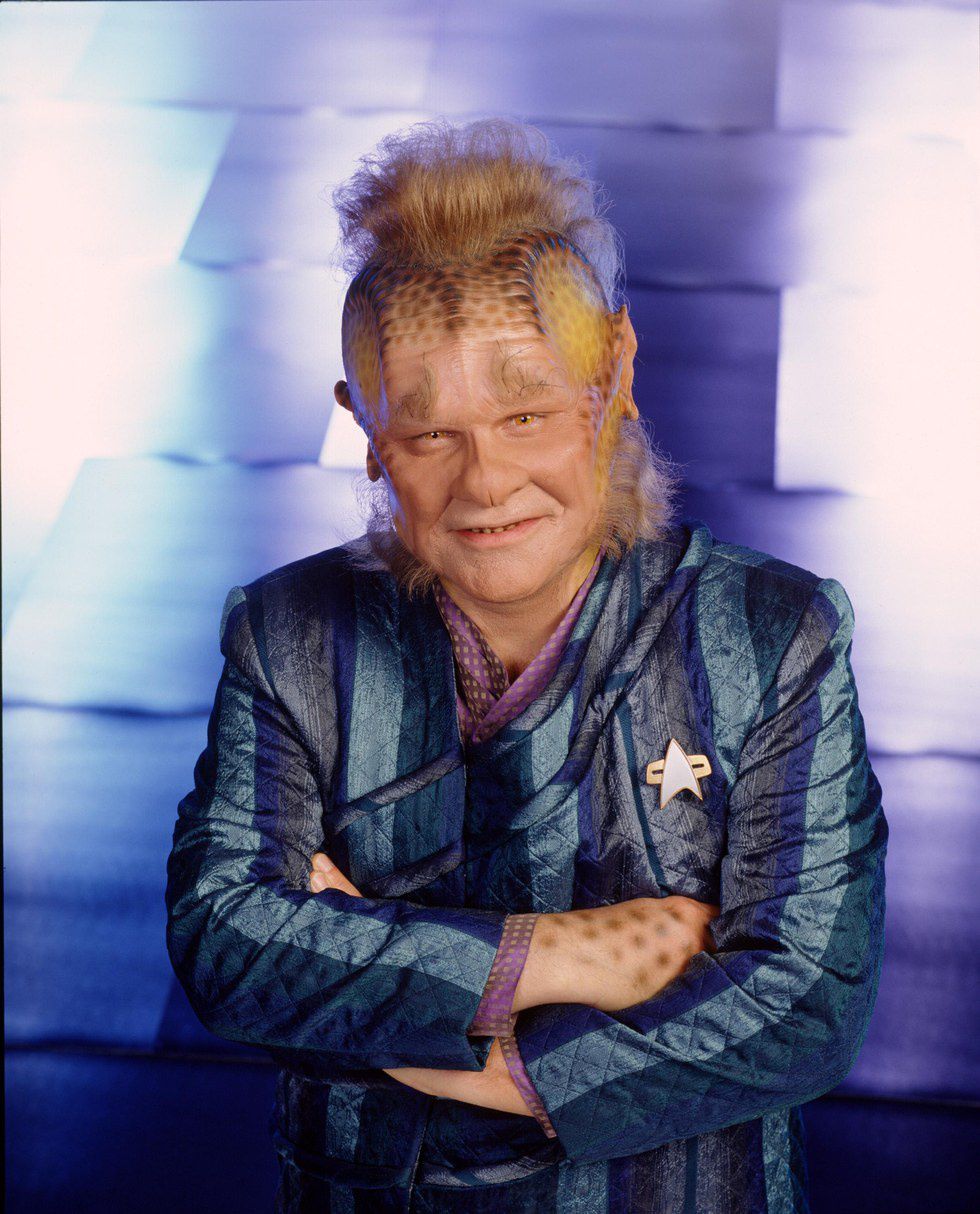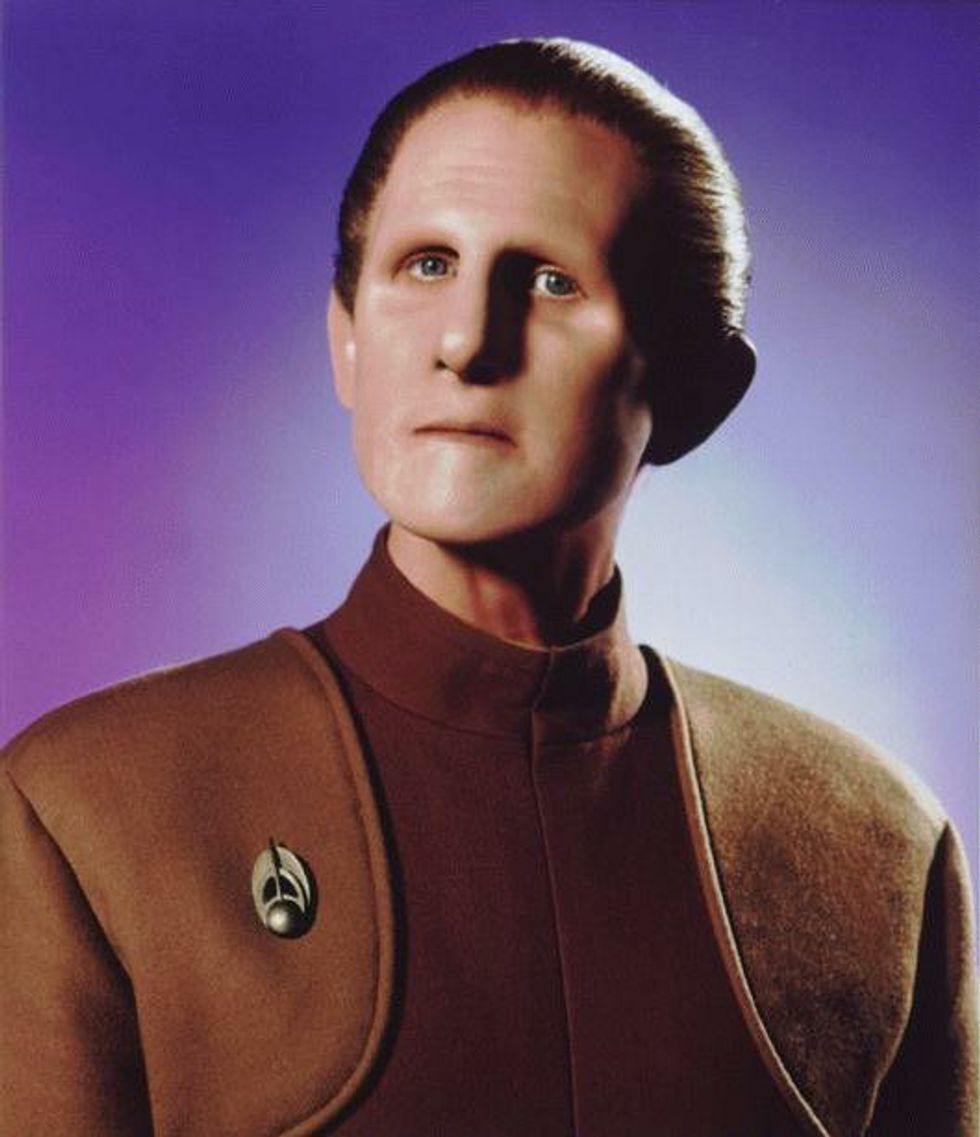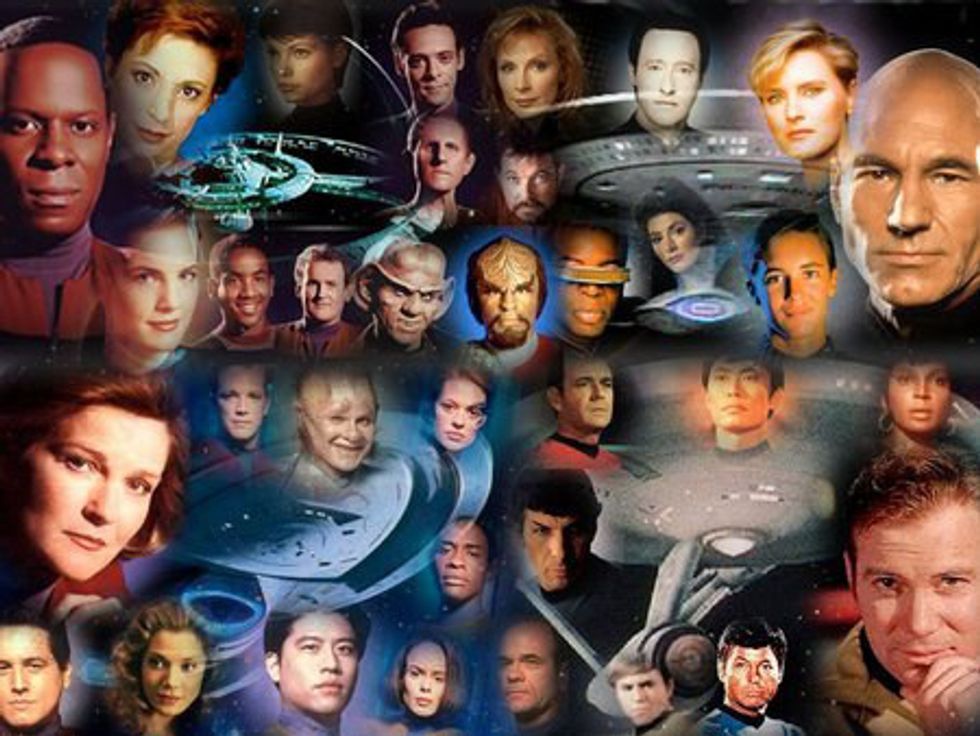The setting is space, the final frontier, between the 23rd and 24th centuries. We follow a Starfleet captain and their bridge crew as they travel throughout the galaxy seeking new life and new words, and most certainly having their desires to do such satisfied. Star Trek is a fantastical, yet enigmatic television series that began in the 1960's and is still being resurrected to this day. Gene Roddenberry created the series as a sort of idealistic view of the future, portraying our own society as primitive. Anyone who has watched a single episode of any Star Trek series will note the social and political allegories strewn about the plot, some many years before the issues would be officially recognized by the populace. However, the most important aspect of Star Trek is the characters that, with their distinctive cultures, agendas, and outlooks on life, drive the story forward. Not only are these futuristic persons intriguing; they can also serve as a messenger of valuable lessons that we can apply to our lives today. And today, we're going to take a look at eight of these characters and the lessons we can learn from them.
5. Neelix
Lesson: Your contributions are important
When the Federation starship Voyager is sent into the Delta Quadrant, the unexplored portion of the galaxy, with napparent way back, the first person they come across is Neelix, a Talaxian, and his partner Kes (who we discussed in the previous article). Neelix and Kes tag along with the Voyager crew, Kes eventually serving as the Doctor's assistant, and Neelix as chef and "morale officer". While the rest of the crew is off making scientific discoveries and trying to find a way back to the Alpha Quadrant (where Earth is located), Neelix lacks the knowledge and skills to contribute to such adventures. At first, he is able to make great contributions to the crew's understanding of the quadrant, but as time goes on and Voyager travels farther and farther from Talaxian space, not even Neelix can help the crew to find their way around. Naturally Neelix feels useless, and even fears being cast off the ship for his lack of contribution; he is even willing to go to great lengths (and with great risk) to retrieve a map of the Quadrant so that he can still serve some purpose. However, as the crew has been away from their friends, families, and homes for over two years, Captain Janeway recognizes Neelix as an essential member of the crew, raising spirits and bringing life to the tense ship.
At some point in your life, you're going to feel useless compared to your peers. Your skills will differ greatly from what is seemingly needed, and you will be ignored for your so-called lack of contribution. However, no matter how seemingly small, the contributions you make are essential. Even if you only serve as a "moral officer" like Neelix, you will be fulfilling a role that is not commonly acknowledged as being important but truly holds great importance. After all, when everyone's hard at work on a seemingly-futile task, someone has to be there to show them that there's more to life than stress.
6: Major Kira

Major Kira Nerys, serving as Captain Sisko's second-in-command aboard Deep Space Nine, is a Bajoran who grew up during the Cardassian occupation of Bajor. Considering that, after watching her father be killed by Cardassian soldiers, she dedicated her life to fighting the Cardassian occupation as a member of the Bajoran militia, she naturally dislikes all Cardassians she encounters. Kira considers her treatment of Cardassians to be fair, as Cardassian society encourages the oppression of Bajorans. Given this, it's not hard to believe that when she got the opportunity to imprison a Cardassian war criminal responsible for slaughtering hundreds of Bajorans, she took advantage of the opportunity. As he continuously attempted to provoke her, she came closer and closer to killing him until she came across a shocking discovery: he was not at all who he said he was. In fact, he was an innocent Cardassian, only serving in the Bajoran concentration camps to provide for his family. He had disguised himself as a killer because that's precisely what he saw himself as, and believed that he was deserving of death. Kira is then faced with a moral dilemma she has never been faced with before: an innocent Cardassian. She convinces him that the actions of his people were not his fault, and she releases him.
Almost immediately after his release, he is brutally stabbed to death by a Bajoran man. Kira frantically tries to tell him that he isn't who he seems, but the man does not care; the fact that he is Cardassian is enough justification for his murder. Kira then weeps over the Cardassian's body.
It's far easier to hold a grudge than to forgive. Throughout your life, people will hurt you without provocation, and you'll find yourself hating everyone like them, whether it's their peer group or sociopolitical views. However, the actions of one do not equal the actions of many. You will have to release your grudge and understand that there's good and bad in every group. Do not allow yourself to remain bitter and hostile like Major Kira did, only changing her disposition when it was too late.
7: Odo
Lesson: Sometimes, family doesn't know best
Constable Odo, Chief of Security aboard Deep Space Nine, is a Changeling, a race regarded as gods in the Gamma Quadrant. However, Odo spent most of his life being studied in a laboratory, being regarded less as a god and more as a lab rat. Odo has the ability to shapeshift (although he admits he cannot replicate a human face very well), but must return to his natural, liquid state for about eight hours a day.
Considering that Odo is the only Changeling around, he has a strong desire to return home and unite with his people. Fortunately for him, his wish comes true. He encounters his own race, known as Founders on their homeworld, who desire him to stay with them. However, Odo eventually realizes that the Founders plan to take over the galaxy, leading a group known as the Dominion. Odo knows that he would be accepted and loved on his homeworld, but he also knows that his natural, biological desire to return must be fought, and that he must protect the Federation from being taken over by his people.
It's easy to associate yourself with your family. After all, it's only human nature to desire having people to call your own. Family often makes you feel like you're not so alone in the world, and can be there to support you when needed. However, this doesn't mean that all family is worth trusting. Often times we are blinded by our connections and refuse to turn against them. However, sometimes you have to rebel in the name of justice. Perhaps this will cause your family to turn against you, but that will not matter. If you're anything like Odo, you'll find family beyond biological relation, those you can trust and feel safe around that may be different from you genetically, but the same as you in their caring nature.
8: Everyone
Lesson: Fictional characters are real in the way that they inspire us
There's not a single character in Star Trek that doesn't have the capability of inspiring you to better yourself and your understanding of the world around you. Star Trek is based in foreign places with foreign people, but with such familiarity that you can't help but see the reality of its messages of social and scientific progression, and its messages of hope, hope that we will someday not only see a better world, but be its architects. Star Trek was Roddenberry's way of conveying such messages to us, and therefore cannot simply be regarded as just a television show, for someday it will be us who will boldly go where no one has gone before.




















